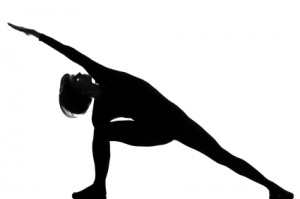
Inside Yoga 256 (14/1/2019)
What is our relationship with time? Do we seek to control time? Do we need more time? Or do we want to slow or speed it up? Whatever our answers might be, time has always been beyond our grasp or control. Yet if we seek to improve the quality of our life we need to understand time.
As the ancient Rome philosopher Seneca says: “It is not that we have so little time, but that we waste so much of it.” Time is precious, in fact, it is our most precious commodity, for while we ponder, procrastinate, and put off “XYZ” till later, time has passed us by. Seneca’s message is a reminder that we can look at our life and get rid of what wastes our time – and this includes not just wasteful activities but thoughts which can take up so much of our time without any benefit.
When it comes to contemplation, whether it’s seated meditation, yoga exercises, or other meditative practices, the time we give ourselves allows us to look clearly into ourselves to understand our inner world and discover the essence of life. It might look like inactivity, but stopping still allows us to fully appreciate the present moment.
Time is not something to “kill” or to feel bored by, as Buddhist monk Matthieu Ricard writes: “Boredom is the affliction of those for whom time has no value. On the other hand, she (or he) who understands the inestimable value of time uses every break from her daily activities and outward stimuli to sample the delicious clarity of the moment. She has no knowledge of boredom, that drought of the mind.”
A distracted mind wastes time, as Ricard explains: “Pointless activities and interminable mental chatter that, far from illuminating the mind, mire it in exhausting chaos. This distraction sets the mind wandering without any respite, misdirects it into side roads and dead ends. Knowing how to use our time to the full does not mean we always have to be in a hurry or obsessed by the clock. Whether we a relaxing or concentrating, resting or intensely active, in all circumstances we must be able to recognise the true value of time.”
There is a great quote by 18th century poet Edward Young: “Procrastination is the thief of time.”
We do not know how much time we have left, so why waste time?
This viewpoint can be used within our yoga practice. Take for example one yoga posture, tadasana (standing pose), which asks us stand still using appropriate muscles to keep us erect and stable, yet we can often find our mind is immediately moving ahead thinking of the next position therefore not fully in the current posture, or we are filled with thoughts of resistance and dislike of this position, or perhaps we are quite simply off with the fairies day-dreaming about XYZ. It takes will power and determination to stay present and focussed on the activity, tadasana in this case, but this is the point of the practice which trains us to be present and aware. And to be aware of what our own mind would rather be doing… daydreaming!
When we hold our attention on the point of focus, like the body or breathing, and our mind is silent, it is as if time has stood still. In fact, time has not stood still, but we have made good use of time, and our time.
While practising yoga postures, notice how often your mind flies off elsewhere, and when it does, refocus your attention on the exercise, bring attention to your breathing and ensure it has deep relaxing flow to it. These steps are simple, for a very good reason, simplifying what we do makes it easier for our body and mind to be present, calm and clear at the same time. Use your yoga practice as an exercise which prepares you for your daily life with all its potential distractions.
In Buddhism there are sayings which highlight the importance of being present, such as, “when I walk, I walk; when I eat, I eat, when I stand, I stand….” If we are doing something pay attention and fully embrace whatever it is. Do not waste time.
There is so much more that can be said about time, but at present, I have not got the time to write anymore!
Related blogs:
https://www.yogabristol.co.uk/2017/10/31/quality-time/
https://www.yogabristol.co.uk/2012/02/21/breaking-free-of-time/
https://www.yogabristol.co.uk/2012/01/16/time-to-think-or-not/
https://www.yogabristol.co.uk/2018/03/19/familiar-with-meditation/
Reading reference: Matthieu Ricard’s “Happiness – a Guide to Developing Life’s Most Important Skill”
Let me know what you think. See reply panel below or email me, gary@yogabristol.co.uk
